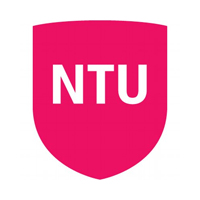fees waived
International Relations, BA (Hons)
Nottingham Trent University, United Kingdom
Ranking in UK
Politics
Politics
Costs
food & rent S$17.1k / year
Entry requirements
Scholarships
Limited quantity
Limited quantity
Limited quantity
Information
Code
Intakes
Website (External)
Programmes
Information
Duration
2029
In an increasingly interconnected world, global challenges such as conflict, climate change, poverty, and inequality demand collaboration, yet international politics remains fragmented. At NTU's International Relations (IR) program, students explore these issues through a personalized curriculum, starting with foundational concepts in the first year and tailoring studies to interests like political violence, regional politics, or cultural dynamics. The program culminates in a supervised dissertation, fostering expertise and innovative learning approaches that build transferable skills for careers in diplomacy, media, NGOs, and beyond.NTU's IR degree emphasizes real-world engagement, including simulations, placements, and study abroad opportunities, set in the vibrant city of Nottingham. Students can learn languages like Arabic or Mandarin and select from modules such as Global Political Economy, Security Studies, or Feminist Thought. Assessment includes essays, presentations, and a final dissertation, with feedback provided within three weeks to support academic growth.
There’s no denying that the 21st Century world is a complex place. We’ve all lived through a global pandemic that transformed everyday life, and we are now seeing a period of war in Europe, secessionist movements in Africa, sectarianism in the Middle East, populism in Latin America, and economic crisis in Asia. It’s a time of almost unprecedented flux and upheaval, but it’s also an urgent and exhilarating time to be studying international relations. IR can be about the very big things happening in the world — the impact of the war in Ukraine on the global economy; the migratory flows stemming from the conflict in Syria; the rising powers of Asia; the decline of the United States; or the crisis of the European Union — but it can also be about our everyday lives: from the clothes you wear and the music you listen to, to the components of the mobile phone in your pocket. All these things establish international relationships with people around the world. That’s why IR@NTU is about seeing the world differently. It’s about identifying the connections, understanding the conflicts, viewing issues from different perspectives, and asking fundamental questions. We’ll dare you to be different, whether that’s in the classroom, out on placement, studying abroad, taking part in our huge range of student-led political clubs and societies, or even by learning a brand-new language. Ultimately, you’ll customise your own degree to reflect your own interests, designing your dissertation to explore in-depth a topic that you are personally passionate about. Your IR@NTU degree puts you at the centre of this complex and tumultuous world. Here’s a breakdown of the core and optional modules you’ll be studying across your course: Year One modules include Study and Research Skills, Politics and International Relations in Practice, An Introduction to International Relations, International Relations and Global History, UN and Global Governance and Media Power and Truth. Year Two modules Careers and Experience in Politics and International Relations, Social Research and Global Political Economy of Everyday Life. Optional modules include Security Studies, Global Politics of Post Colonialism, Environmental Politics and Policy, The Politics of Art, Film and Literature, Understanding Foreign Policy and Foreign Language. You may choose to take an optional year-long placement in Year Three, either in the UK or overseas. You will be supported by our experienced Employability Team to source a suitable placement. Final year modules include a Dissertation, Leadership, Activism and Campaigning. Optional modules include Negotiating in International Contexts, Africa, Latin America and the Caribbean in World Politics, Feminist Thought and Praxis, Globalisation in Crisis, Global Politics of Pop Culture, The International Relations of the Middle East and North Africa, East of the West: Eurasian Geopolitics, Political Violence & Terror and Emerging Powers of Asia.
A local representative of Nottingham Trent University in Singapore is available online to assist you with enquiries about this course.

